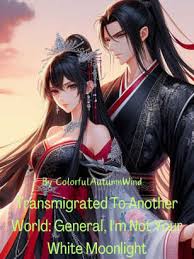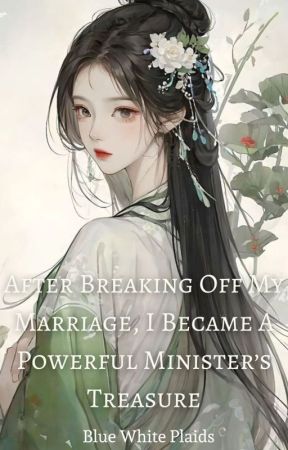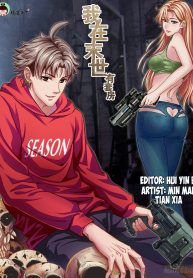The Story in 3 Sentences
A modern heiress, Shen Xiaoxiao, awakens in the primitive Minze Country, stripped of her former luxury and burdened by a family that sees her as worthless, her only solace a miraculous portable space gifted by fate.
Her journey shifts from mere survival to empire-building as she leverages her modern knowledge and space to revolutionize agriculture, invent technologies, and uplift the entire populace, transforming from a despised “money pit” into the dynasty’s most cherished Princess.
The story’s direction arcs towards a complex tapestry of wealth, power, and societal reform, constantly shadowed by familial toxicity and a possessive male lead, culminating in her undeniable legacy as the beautiful, benevolent force that reshaped Minze.
Why It Stands Out
1. The Golden Finger Paradox
The novel’s core allure is its shamelessly potent “golden finger” – the portable space. It’s not just a tool; it’s a deus ex machina that enables everything from miraculous healing springs to instant wealth generation. This isn’t subtle power fantasy; it’s a full-throttle embrace of wish fulfillment, letting the protagonist bypass the era’s harsh realities with modern ingenuity, making her rise from rags to revered Princess feel both inevitable and wildly entertaining for fans of the genre.
2. The Unresolved Family Drama Vortex
What truly sets it apart, for better or worse, is its handling of family conflict. Instead of a clean revenge arc, the narrative traps the protagonist and her parents in a maddening loop of forgiveness and betrayal. The grandparents and uncles commit heinous acts—attempted murder, selling children into slavery—only to be invited back to feasts. This refusal to grant cathartic retribution creates a unique, albeit frustrating, tension that sparks endless debate among readers, making the family dynamics a central, unforgettable character in itself.
3. The ML’s Smothering Obsession as a Plot Device
The male lead’s character isn’t just a love interest; he’s a walking, talking plot engine of conflict. His extreme, irrational possessiveness—physically restraining the hyper-competent FL from walking or seeing her family—isn’t portrayed as a flaw to be overcome, but as a constant, illogical force that repeatedly engineers the very crises the FL’s space should prevent. This transforms him from a romantic hero into a primary source of narrative friction, a bold and polarizing choice that defines the story’s peculiar rhythm.
Characters That Leave a Mark
There’s Shen Jinghao – the protagonist’s father, whose defining trait is a pathological, almost absurd level of filial piety. Despite his parents and siblings repeatedly trying to murder his children and burn down his home, he consistently forgives them with a shrug, embodying a frustrating passivity that fuels the story’s central familial conflict.
You’ll meet Shen Yun’er, who is the protagonist’s tragically lost twin sister. Her kidnapping and near-death at the hands of their own uncle is a pivotal, harrowing event that should shatter the family, yet it becomes just another unresolved plot point, highlighting the story’s central theme of cyclical, unaddressed trauma.
And County Lord Rui’an? They’re the one who embodies the male lead’s suffocating devotion. Referred to by title and known for his extreme jealousy and control, he is less a character with depth and more a force of nature whose sole purpose is to rescue the FL from dangers she creates and then prevent her from any independent action, creating a dynamic that is as infuriating as it is central to the plot.
The Flaws Fans Debate
The male lead’s obsessive and controlling behavior is often cited as toxic and unrealistic, undermining the female lead’s competence and agency.
The narrative suffers from severe plot inconsistency, particularly regarding the portable space—sometimes the ML knows about it, sometimes he doesn’t, with no clear logic.
The story structure is criticized for being repetitive and artificially stretched, using the same kidnapping/rescue trope on a short, predictable cycle.
Character motivations and relationships are wildly inconsistent, shifting based on immediate plot needs rather than established personalities.
The translation and chapter posting are reportedly messy, with chapters appearing out of order, missing, or containing formatting errors, breaking immersion.
Must-Experience Arcs
Ch. 1–50: The Awakening and First Harvest – The protagonist adapts to her new life, discovers her space, and uses her modern knowledge to achieve a miraculous first harvest, establishing her value and setting the stage for her rise while navigating initial family hostility.
Ch. 300–400: The Princess Ascendant – After gaining significant wealth and influence, Shen Xiaoxiao is formally recognized by the imperial court. This arc focuses on her large-scale societal projects, political maneuvering, and the intensifying, suffocating dynamic with the ML as her power grows.
Ch. 1100–1200: The Legacy and Lingering Shadows – In the final stretch, the protagonist solidifies her legacy as Minze’s blessing. However, the arc is marked by the unresolved tension with her birth family and the ML’s unchanging possessiveness, forcing a bittersweet conclusion where triumph is shadowed by persistent, unhealed wounds.
Killer Quotes
“A fair lady matched with a good gentleman, what is there to laugh about?”
Cultural Impact
The novel is a staple example in online discussions about the “transmigration with a space” trope, often used as a benchmark for both its appeal and its common pitfalls.
Its portrayal of the ML’s extreme possessiveness has become a meme template in fan communities, symbolizing the “overly obsessive male lead” archetype in webnovels.
Readers frequently cite its infuriating family dynamics in forums, using it as a case study for stories that refuse to grant satisfying revenge, sparking debates about narrative catharsis.
Final Verdict
Start Here If You Want:
A classic, no-holds-barred transmigration power fantasy with a potent “golden finger” and a rags-to-riches-to-royalty arc.
A story where the protagonist’s modern ingenuity constantly clashes with and reshapes a primitive world, offering satisfying moments of invention and societal progress.
A narrative driven by intense, albeit problematic, romantic and familial tensions that guarantee you’ll have strong opinions, whether positive or negative.
Study If You Love:
Analyzing the mechanics of wish fulfillment in popular webnovel tropes and how they drive reader engagement despite logical flaws.
Exploring narratives that deliberately subvert the revenge fantasy by trapping characters in cycles of forgiveness and trauma, creating a unique form of dramatic tension.
Examining the cultural archetype of the “obsessive male lead” in Eastern romance and how his role as a plot device can overshadow traditional character development.
Avoid If You Prefer:
Consistent character motivations and logical plot progression over repetitive, trope-driven drama.
Stories where the female lead’s agency and competence are never undermined by external forces, especially romantic ones.
Narratives that offer cathartic resolution to central conflicts, particularly familial betrayal, rather than leaving them perpetually unresolved.





